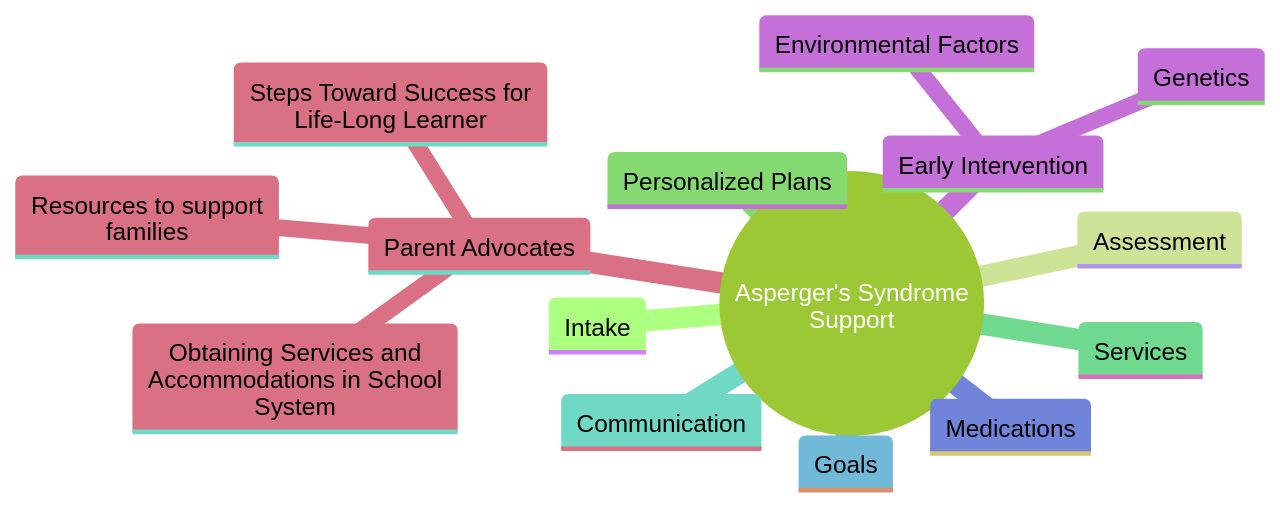Introduction
Supporting children with Asperger's Syndrome requires a deep understanding of their unique challenges and needs. As a Parent Advocate, it's crucial to adopt a structured approach and consistently monitor strategies to ensure the ongoing well-being of these children. In this article, we will explore effective strategies for Parent Advocates, starting from the initial intake and assessment process to creating personalized plans and implementing a suite of services.
We will also discuss the importance of open communication and partnership between therapists and families, as well as the significance of setting specific, measurable goals. Additionally, we will touch upon recent studies that shed light on the factors influencing autism development. Join us on this journey to empower Parent Advocates and ensure the best outcomes for children with Asperger's Syndrome.
Strategies for Parent Advocates
Supporting children with Asperger's Syndrome is a journey that requires a deep understanding of their unique challenges and needs. To empower those who advocate for these children, it's essential to adopt a structured approach that includes consistent monitoring to adjust strategies and ensure ongoing benefits.
This begins with intake, where all necessary information about the child is collected, potentially leading to a formal diagnosis. A comprehensive assessment follows, allowing for the creation of a personalized plan designed to cater to the child and family's individual needs.
Implementing this plan involves a suite of services, with open communication and partnership between therapists and families being the cornerstone of success. Hearing from families who have seen positive changes can bolster confidence and provide a sense of community.
Setting specific, measurable goals for the child is crucial, as is recognizing the importance of caregivers understanding their child's medications and the weight of their decisions. As one caregiver expressed, the balance between researching treatments and recognizing when to take a step back is delicate but necessary.
The rise in autism diagnoses, now affecting 1 in 36 children in the United States, underscores the urgency for effective support. Experts note that while treatments for autism spectrum disorders (ASD) are diverse, early intervention is key to minimizing symptoms. Recent studies suggest that genetics and environmental factors, including insecticide exposure and gut biome, may influence autism development. Notably, a study involving 1.3 million children found a slight increase in autism risk among children born to individuals with infertility challenges, although fertility treatments themselves did not appear to be a factor. Ultimately, trust in one's instincts as a parent advocate is paramount—if something feels amiss, it's important to pursue answers and support. This journey is not just about the children but also about the resilience and advocacy of those who care for them.

Conclusion
In conclusion, supporting children with Asperger's Syndrome requires a structured approach that includes consistent monitoring and adjustment of strategies to ensure ongoing benefits. The journey begins with the intake process, followed by a comprehensive assessment to create personalized plans tailored to the child and family's needs.
Open communication and partnership between therapists and families are vital for success, as they form the cornerstone of effective support. Setting specific, measurable goals for the child is crucial, as is understanding the weight of decision-making as a caregiver.
The rise in autism diagnoses emphasizes the urgency for effective support, with early intervention being key in minimizing symptoms. Recent studies suggest that genetics and environmental factors may influence autism development, highlighting the need for further research and awareness.
Trusting one's instincts as a parent advocate is paramount, as pursuing answers and support when something feels amiss is essential. This journey is not just about the children but also about the resilience and advocacy of those who care for them. Hearing from other families who have seen positive changes can provide a sense of community and bolster confidence. By empowering parent advocates with knowledge, resources, and support, we can ensure the well-being of children with Asperger's Syndrome and create a brighter future for them.




